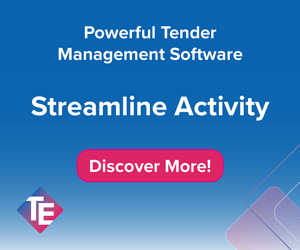Every proposal professional knows that collaboration with subject-matter experts (SMEs) can be difficult. You need their input to prepare a compliant, persuasive proposal, but all too often that is compromised by missed deadlines or input that misses the mark. In a sense, they are your proposal lifeline, and your success is jeopardized if you can’t rely on them.
But before you judge SMEs, put yourself in their shoes. Did they receive adequate instructions? Do they have a good understanding of the proposal process, and what is at stake? And most critically, are they invested in the outcome? Answering “yes” to these questions can mean turning indifferent SMEs into committed collaborators — and seeing vast improvements in their contributions to your proposals. It starts with three keys to strong SME relationships: orientation, communication and recognition.
Orientation: Building a Foundation
Formalize the SME role so every SME has the resources to effectively support proposals. Those resources are:
- A basic introduction to the RFP process
- An explanation of their responsibilities
- Clear instructions on how to fulfill those responsibilities
SME orientation should start with a brief overview of what RFPs are and why your organization’s proposal team responds to them. While that may be obvious to you, it is vital level-setting for those who don’t live in the world of proposals. The core of the orientation, though, should focus on SMEs’ specific role in the RFP process and how your team will work with them. The overall goal is to educate them so they understand what to expect from you and what is expected of them.
Once the orientation is developed, you can disseminate it in whatever way works best for your organization such as in-person training, a webinar or a user’s manual. Ensure it’s available on demand and reinforced through the next key: communication.
Communication: Fostering the Relationship
SME relationships thrive with open, consistent communication that follows the processes you outlined in their orientation. That means making sure your requests are clear, concise and direct. It also requires striking a balance between being friendly and firm. In all cases, respect SMEs’ time and expertise, and encourage them to respect yours.
Apart from seeking RFP input, you can build your SME relationships with regular communications such as:
- Summaries of proposal outputs over a given period
- Outcomes of RFPs, especially contract wins
- Forecasts of upcoming projects
- Links to orientation resources
For efficiency, you can combine communications such as these into monthly or quarterly newsletters to nurture wider appreciation of the RFP process and SMEs’ role in it. When SMEs see proof that they contributed to a winning proposal, it promotes a sense of ownership in that success. This simple act of acknowledging their impact on proposal activity supports an atmosphere of collaboration, adherence to your defined processes and better proposal outcomes, leading to the final key: recognition.
Recognition: Keeping SMEs Invested
Individuals and teams work best when everyone feels appreciated and valued. SMEs are no different. Commend them for their hard work by:
- Calling out those who contributed to a winning proposal
- Giving out “official SME” pens, notepads or other gifts
- Distributing certificates they can display at their desks
- Hosting an appreciation breakfast or lunch
Recognition can be as elaborate as you like, but even the smallest token of appreciation can pay dividends when it conveys genuine gratitude.
With each of these three keys to SME relationships, there is a lot of room to customize processes within your organization. It’s good to experiment with different methods and then double down on those tactics that work well. The right mix of orientation, communication and recognition for your SMEs can motivate them to be the informed, reliable partners you need — a true proposal lifeline.
Edward Pfeilsticker, CF APMP, is principal proposal consultant at Blue Cross and Blue Shield of Minnesota. He has 15 years of experience in proposal development and project management, and in addition to responding to client RFPs and RFIs, he focuses on process improvement, subject-matter expert engagement and cross-functional collaboration.



Join the Conversation